Archive
10 October 2019
Pascale Daran: "’Involve me and I learn’ is my teaching motto”
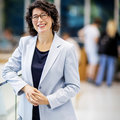
Interactive lecturing is a priority of TNW Teacher of The Year Pascale Daran (LST). She coordinates the bachelor's practical course in Biotechnology Basic Techniques and discusses scientific literature with master's students in the Metabolic Reprogramming course. "I like this form of education, students see that I do this from the heart. For me, a lecture is a success if the discussion is so animated that I could just disappear."
08 October 2019
New horizons for connecting future quantum computers into a quantum network
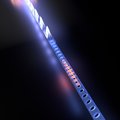
26 September 2019
Launch of new raw material from wastewater: Kaumera
A sustainable alternative to chemicals in seeds, granular fertilizer, concrete and paint? On 2 October 2019, water boards, science (TU Delft) and industry will present a new raw material extracted from wastewater: Kaumera Nereda® Gum. This raw material is a sustainable alternative to chemical raw materials and can be used as a smart coating for seeds and granular fertilizer, as a glue and binder and in many other ways.
26 September 2019
Martin Bruggink: "Teaching better by connecting to the student's perspective"
Teacher of the Year Martin Bruggink (SEC) is all about education. "How do you ensure that people really learn something, that's the question teacher training revolves around. I teach the TU students I am in charge of to pass on knowledge to secondary school students as well as possible. I am pleased with the appreciation for education expressed in this election, which clearly shows that you can excel in this area as well."
24 September 2019
'Battery research holds promises, but still has a long way to go'
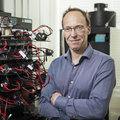
Inaugaral lecture prof.dr.ir. M. Wagemaker (TNW): Recharge 25 september 2019, starts at 15:00 – Aula, TU Delft
17 September 2019
A molecular bridge further
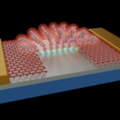
Electronics built from molecules could open up new possibilities in the miniaturization of circuits in the future. TU Delft researchers, together with partners from Switzerland (Empa), the Netherlands, Israel, and the UK, succeeded in solving a crucial detail in the realization of such circuit elements: A molecular bridge for electrons that remains mechanically and electronically stable at room temperature. The results have just been published in the journal "Nature Nanotechnology".
16 September 2019
The Netherlands as an international centre for Quantum Technology
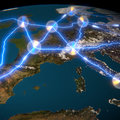
State Secretary Mona Keijzer received the National Agenda on Quantum Technology directly from Robbert Dijkgraaf this afternoon.
12 September 2019
Sjoerd Stallinga and Bernd Rieger host Single Molecule Localization Microscopy Symposium
From 26 to 28 August, Sjoerd Stallinga and Bernd Rieger from the department of Imaging Physics hosted the 9th Single Molecule Localization Microscopy Symposium, bringing together scientists working in the field of single-molecule super-resolution imaging.
12 September 2019
Teacher of the Year Gary Steele learns from his own lectures
His infectious enthusiasm, clarity and good examples are just a few of the reasons for his election as TNW's Teacher of the Year (TN/AP). Gary Steele is pleasantly surprised. "This is great feedback. It is important to know how students experience their education, so that you can make the lectures better and better."
11 September 2019
Cable bacteria: Living electrical wires with record conductivity
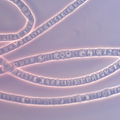
Bacteria that power themselves using electricity and are able to send electrical currents over long distances through highly conductive power lines. It almost sounds like the way we charge our TVs and refrigerators, and may seem hard to believe, but it is a recent discovery by a team of scientists from the University of Antwerp (Belgium), Delft University of Technology (Netherlands) and the University of Hasselt (Belgium). Centimeter-long bacteria from the seafloor contain a conductive fiber network that operates in comparable way to the copper wiring that we use to transport electricity. The highly conductive fibers enable a completely new interface between biology and electronics, providing a prospect for new materials and technology.